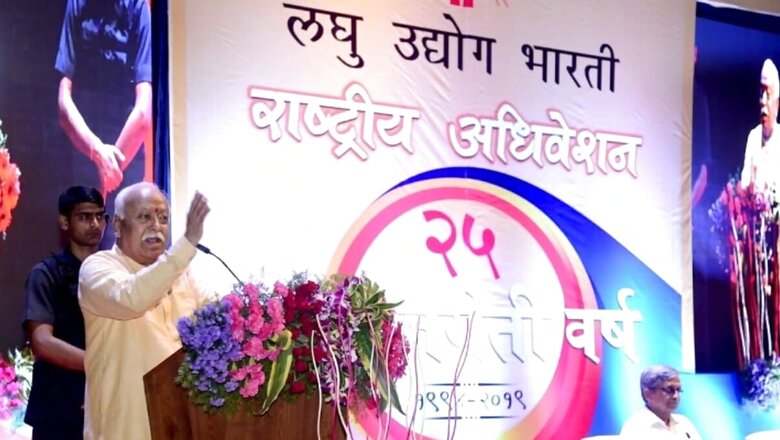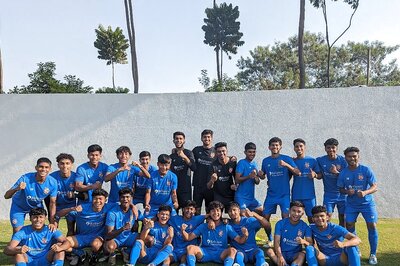
views
After raising concerns over the “raid-like” inspections of micro and small pharma firms, RSS-affiliate Laghu Udyog Bharati (LUB) has been invited by the Union health minister for a detailed discussion next week, the body’s chief told News18.
LUB, which is a registered national-level organisation working for the cause of micro, small and medium (MSME) enterprises, had requested an appointment with Mansukh Mandaviya in a letter written on October 5.
In the letter, LBU had cautioned the government about the potential for medicine shortages in the coming months, attributing the concern to the atmosphere of “apprehension” generated by ongoing risk-based inspections and actions taken in the form of closures or production halts.
“We have been invited to meet the minister next week. The ministry has ensured that all our concerns related to health ministry will be discussed and sorted out,” Ghan Shyam Ojha, all-India president of LBU, told News18.
“We have already asked the health minister via our last letter to ignore minor errors such as documentation errors which do not involve a threat to public health. The inspectors should take action only if there is a problem with medicines or public safety. We will discuss the same issue with the minister in the meeting.”
‘Jan Aushadhi should procure better-quality drugs’
While the ongoing raids have raised apprehension over the quality of drugs produced by MSMEs, LBU has advised the Union government to change the protocol of selecting tenders for buying medicines under PM Narendra Modi’s Pradhan Mantri Bhartiya Jan Aushadhi Pariyojana (PMBJP).
LBU, in a letter to the health minister, advocated for a “quality first” approach.
“Quality is the most important thing but we have noticed that various state governments and Jan Aushadhi tenders procure the medicines on a Lowest One (L1) basis which means the cheapest price. In the cheapest price, the quality of products will be compromised,” Ojha said, adding that LBU will discuss the issue with the minister. “It should be purchased on base price and Q1 (Quality First basis)”
Ojha said the government should fix the minimum base price in the health sector to keep with the Q1 Policy.
However, according to Ravi Dadhich, chief executive officer, Pharmaceuticals and Medical Devices Bureau of India (PMBI) — the government arm that executes the scheme — “there is absolutely no relationship of price of purchasing medicines with the quality of medicines supplied”.
“We ensure that all products follow a similar quality standard by anonymising the medicines and sending them to privately empanelled NABL accredited standard labs spread throughout the country.”
Ojha said the application of Schedule M is a critical issue. “We are preparing a presentation for the meeting. It will contain details of all the issues that are a bone of contention.”
In August, the health ministry said drug manufacturers with an annual turnover of more than Rs 250 crore have to comply with the standards of Schedule M (which are equivalent to WHO-GMP certification) within six months and for companies with less than Rs 250 crore turnover, the timeline will be a year.
However, in the letter, LBU has clarified that the industry needs a “minimum three-year period” to bring changes. It said that the draft rule of 2018 shall not be made applicable on a “hue and cry basis”.



















Comments
0 comment